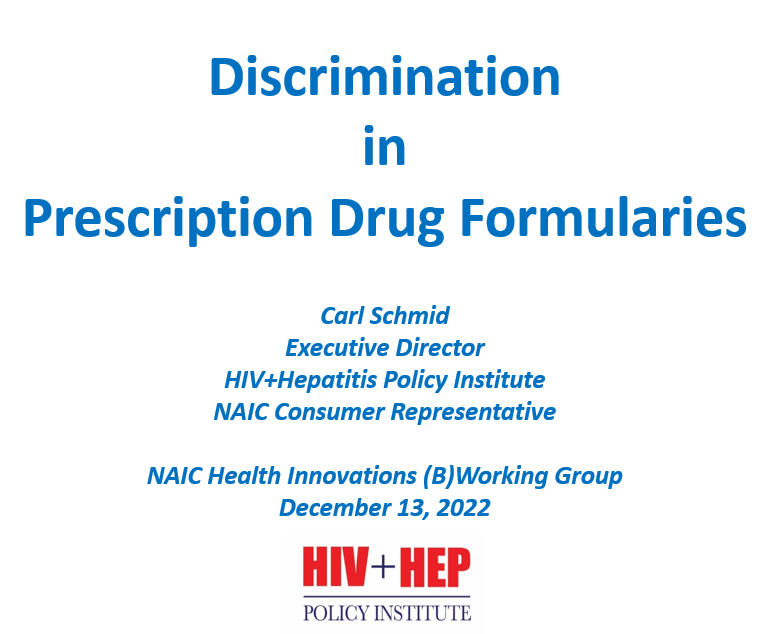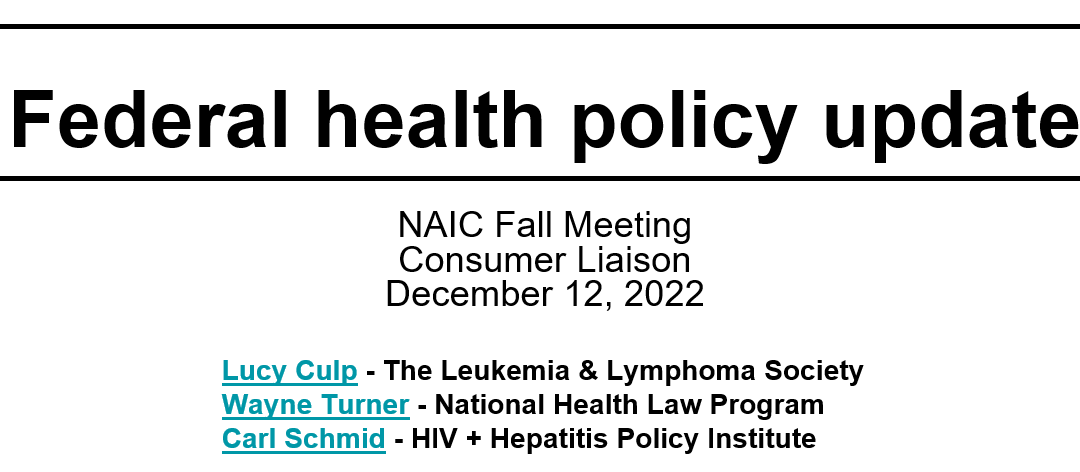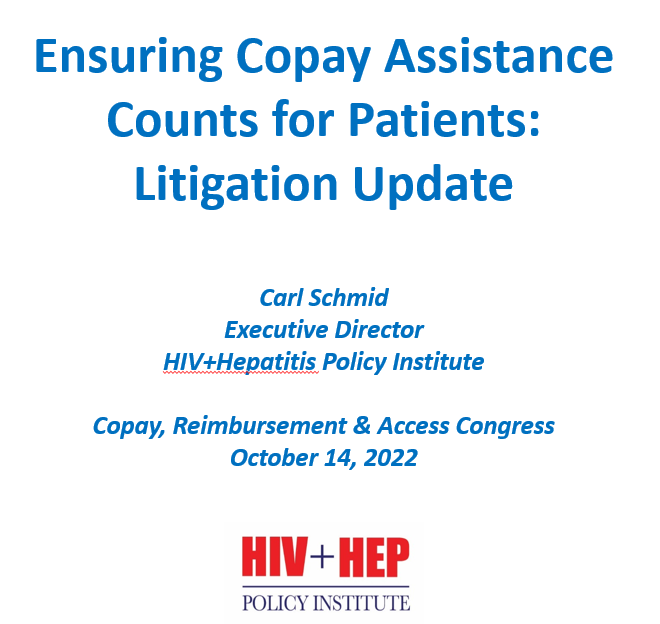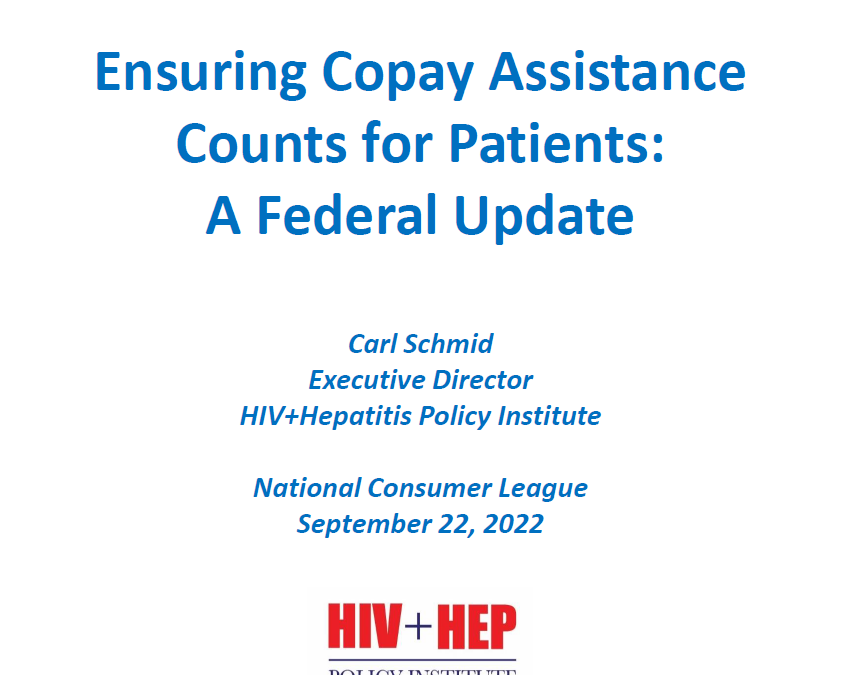Carl Schmid speaks with “Houston Matters” radio, along with a San Antonio, Texas PrEP client, about private insurers continuing to charge cost-sharing for PrEP and associated services and its impact on PrEP uptake.


Carl Schmid speaks with “Houston Matters” radio, along with a San Antonio, Texas PrEP client, about private insurers continuing to charge cost-sharing for PrEP and associated services and its impact on PrEP uptake.

Carl Schmid discusses discrimination in prescription drug formularies, demonstrating how some PBMs and private insurers violate ACA provisions and hurt patients by placing life-saving prescription drugs on higher cost tiers.

Carl Schmid, along w/ other NAIC consumer reps., provides federal update at its Fall Meeting in Tampa with a focus on updated regulations to strengthen ACA Section 1557 non-discrimination rule and copay accumulator litigation to ensure copay assistance counts.

At Informa Connect’s Copay, Reimbursement and Access Congress, Carl Schmid discusses the litigation filed by HIV+Hep, the DLC, and the DPAC in the U.S. District Court for DC challenging a federal rule that allows health insurers to avoid counting the value of drug manufacturer copay assistance toward patients’ out-of-pocket cost obligations in violation of the ACA definition of and regulations for cost-sharing.

Carl Schmid discusses on a National Consumers League webinar current federal advocacy efforts to ensure that copay assistance for prescription drugs counts. This includes comments on two regulations, a congressional bill, and recent litigation initiated by HIV+Hep and two diabetes groups.